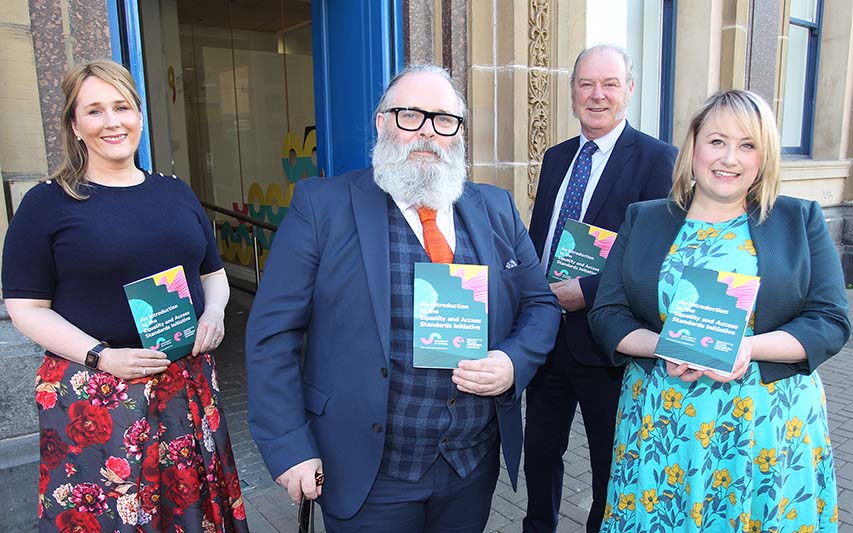New initiative aims to ensure equality and access to the Arts for the d/deaf, disabled and neurodiverse community
The Down Arts Centre is involved in a new initiative set to improve access and participation in the arts for an estimated 360,000 people in Northern Ireland who live with a disability.
The Downpatrick-based theatre is among ten leading arts venues across Northern Ireland that have signed up for the Equality and Access Standards Initiative (EASI), which is aimed at improving equality, access and inclusion for D/deaf, disabled and neurodiverse (DDND) arts practitioners, audience members, employees and volunteers.
The new pilot scheme is managed by the University of Atypical, which advocates for people with a disability and runs the popular Bounce Arts Festival.
Damien Coyle, CEO of the University of Atypical, said it was an important development in its ongoing campaign to increase participation and access to the arts for the DDND community.

“One in five people live with a disability and many older people experience access issues on a daily basis and this includes access to arts venues. The aim is not to judge, but to work closely with venues and support them in reviewing what they do now and explore how this can be improved,” said Damien Coyle.
The other venues involved are the Lyric Theatre, the MAC, the Crescent Arts Centre in Belfast; the Millennium Forum and the Playhouse Theatre in Derry/Londonderry; the Alley Arts Centre in Strabane; the Burnavon Arts Centre in Cookstown; the Marketplace Arts Centre in Armagh and the Strule Arts Centre in Omagh.
The scheme will look at other equality, access and inclusion areas such as recruitment procedures, consultation with, and representation for, the DDND community; the development of family friendly performances; accessible and relaxed performances, and accessible websites.
The University of Atypical will undertake initial assessments, work with venues to agree development plans, provide employees with accredited training opportunities, conduct follow up site visits to review improvements and award accreditation ranging from bronze to centre of excellence standards.
Damien Coyle added: “Our aim is to ensure that the DDND community has the opportunity to engage in the arts on its own terms, knowing that arts organisations will endeavour to meet their access requirements.
“EASI is a comprehensive continuous development programme for organisations to demonstrate their commitment to equality, access and inclusion. This initiative will encourage arts organisation to ensure that they are fully accessible to DDND patrons, employees, volunteers and artists.”
The University of Atypical will also provide equipment hire for arts organisations wishing to use audio description, induction loops and will translate documents into Braille and Easy Read versions. The University of Atypical will work with venues to create social narrative videos aimed at supporting DDND people who are visiting venues for the first time.
These will include a video tour of the venue – one has already been carried out for the Queen’s Film Theatre and is available on its website.
The research and development and pilot project stages have been funded by the Arts Council of Northern Ireland and Belfast City Council with developmental support provided by Derry City and Strabane District Council’s Arts and Culture team.
Speaking at the launch on March 31 were Liam Hannaway, Chair of the Arts Council of Northern Ireland; Moira Doherty, Acting Permanent Secretary at the Department for Communities and Anna Egner, University of Atypical Board member and trustee.
Representatives from the venues participating in the initiative were in attendance in person or on Zoom.
Through the EASI, the University of Atypical has established an Arts and Disability Consultative Forum as a mechanism to support other organisations and agencies who want to consult with the d/Deaf, disabled and Neurodiverse arts community.
The next phase of the Equality and Access Standards Initiative will include non-venue based arts organisations.
For more information about the work of University of Atypical go to:

























